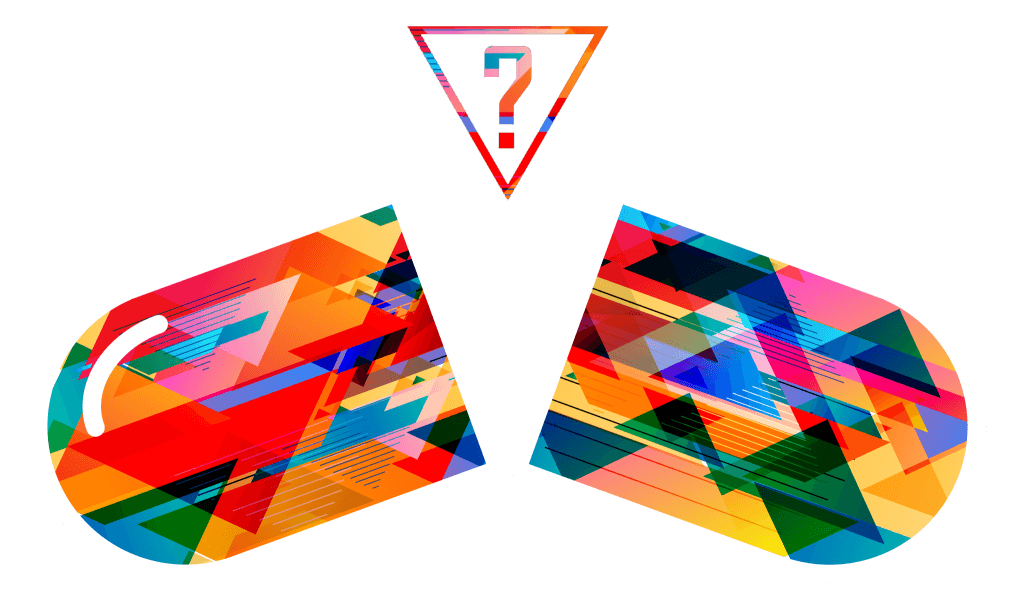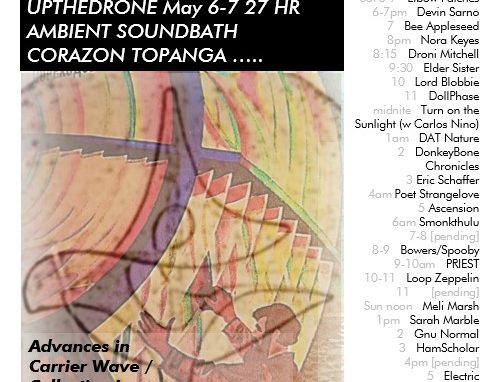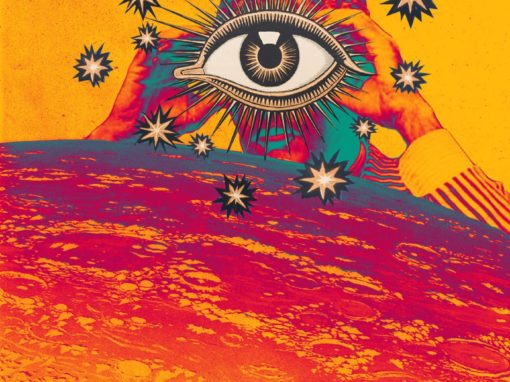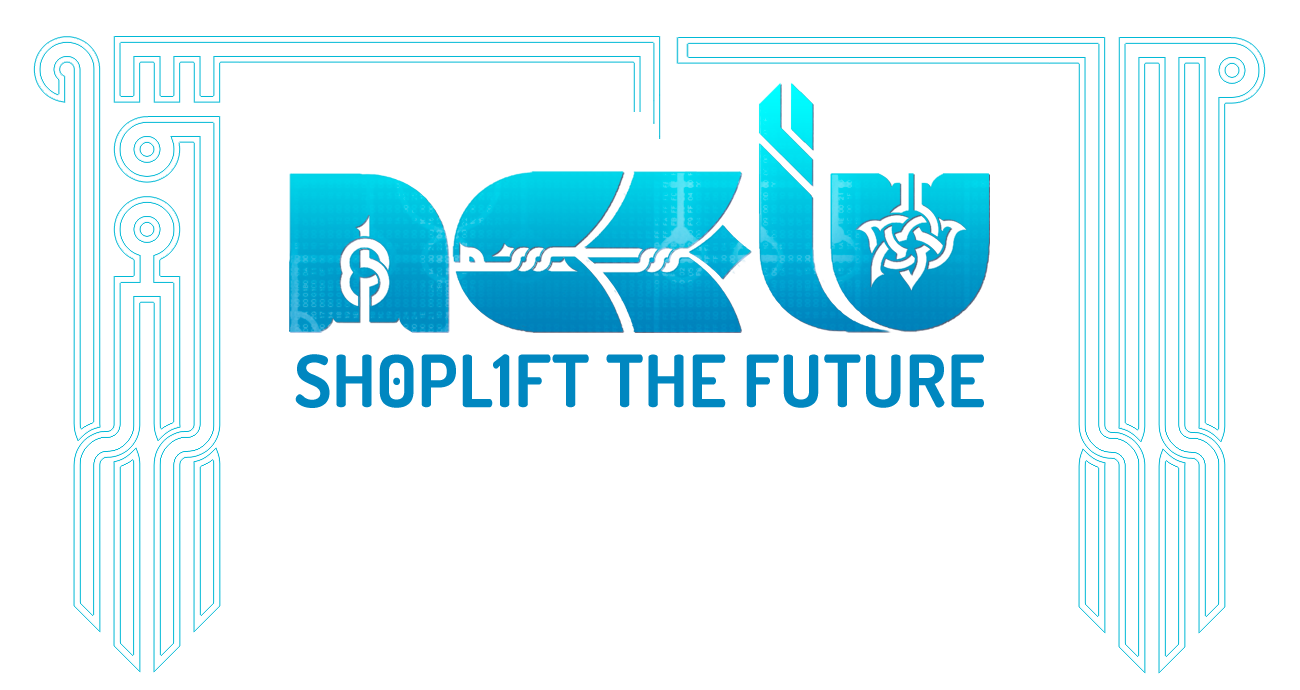Generally speaking, we ain’t so hot on the medicalization of psychedelics — and the commercialization push that seems to underpin it.
Medicalization is a long end-run around prohibition.
Many celebrate it — most notably, the crew at MAPS — but from our pov, the DecrimNature movement is a preferable socio-political strategy.
De-enforce, let people use and distribute plant psychedelics (& fungi) informally.
Plant psychedelics are sacraments.
Admittedly, with synthetic psychedelics — stuff that is arguably pharmaceuticals, whether from an above or below ground lab — the convo gets a bit more complicated, occupying an in-between space.
Perhaps responding to certain critiques, MAPS is now promulgating a “NorthStar Ethics Initiative”, with a proposed “9 Principles” that address some of the challenges moving forward – maybe to be covered in a future Neelu post.
But, in our opinion, Cognitive Liberty should be the simple principle that prevails over all.
The concept has been eclipsed somewhat since it was first fielded back in the 90s, but that doesn’t mean it’s any less important.
The term “cognitive liberty” was coined by neuroethicist Dr. Wrye Sententia and legal theorist and lawyer Richard Glen Boire, the founders and directors of the non-profit Center for Cognitive Liberty and Ethics (CCLE). Sententia and Boire define cognitive liberty as “the right of each individual to think independently and autonomously, to use the full power of his or her mind, and to engage in multiple modes of thought.”
Sententia and Boire conceived of the concept of cognitive liberty as a response to the increasing ability of technology to monitor and manipulate cognitive function, and the corresponding increase in the need to ensure individual cognitive autonomy and privacy. Sententia divides the practical application of cognitive liberty into two principles:
As long as their behavior does not endanger others, individuals should not be compelled against their will to use technologies that directly interact with the brain or be forced to take certain psychoactive drugs.
As long as they do not subsequently engage in behavior that harms others, individuals should not be prohibited from, or criminalized for, using new mind-enhancing drugs and technologies. — Wikipedia
The medicalization thrust, instead, directly implies federal and state regulations, plus arguably the eventual construction of a psychedelic bureaucracy, with writs of authority, licenses, credentials and whatnot as to who can and cannot facilitate and participate in entheogenic sourcing, journeying and useages.
True, at this point, it’s inevitable, but not too late to affect it’s evolution in mass culture.
We’ve already seen what happened with the hyper-regulation of cannabis under Prop64 in California. Yes, it stopped a lot of people from getting busted for mere possession. But we’ve also got an epic bureaucratic clusterfuck that only the most highly capitalized players can navigate. (And maybe some cleaner over-the-counter pot, with all that testing.)
That said, Ms. Fielding seems like she’s always doing good work in parallel with MAPS, supporting research, yet also starting to dabble with these entheogenic startup-types.
What does she think of MAPS NorthStar Principles? Dunno.

Highlights:
…Amanda Feilding, Founder and Director of the Beckley Foundation and co-director of the Beckley/Maastricht Microdosing Research Programme commented: “The present data suggests low doses of LSD could constitute a useful pain management treatment option that is not only effective in patients but is also devoid of the problematic consequences associated with current mainstay drugs, such as opioids. Over 16 million people worldwide are currently suffering from Opioid Use Disorder and many more will become hooked as a result of oversubscription of pain medication. I am encouraged by these results as I have long believed that LSD may not only change the sensations of pain but also our subjective relationship with it. We must continue to explore this with the aim of providing safer, non-addictive alternatives to pain management, and to bring people in pain a step closer to living happier, healthier and fully expressed lives.”
… Remarkably, changes in pain tolerance and subjective pain perception induced by the low dose of LSD under these circumstances were comparable in magnitude to those observed after administration of opioids, such as oxycodone and morphine to healthy volunteers (our emphasis)
…
Lead researcher on the study and Professor of Psychopharmacology and Behavioral Toxicology at Maastricht University, Jan Ramaekers adds: “This study in healthy volunteers shows that a low dose of LSD produces an analgesic effect in the absence of a psychedelic effect , as assessed with a cold pressure tests. The magnitude of the analgesic effect appears comparable to analgesic effects of opioids in the same pain model. These findings strongly encourage clinical trials in pain patients to assess the replicability and generalizability of these findings.”
PRESS RELEASE
Clinical Study into LSD Microdosing
Shows Strong Pain Management PotentialA new UK and European placebo-controlled clinical study completed by the Beckley Foundation and Maastricht University has shown that low doses of the psychedelic compound lysergic acid diethylamide (LSD) may provide a viable, non-addictive alternative for pain management. The Beckley/Maastricht Microdosing Research Programme was set up to study the effects of
small doses (commonly referred to as ‘microdoses’) of LSD on humans, with a particular focus on mood, cognitive functions, and pain management. The study, which was the first in a series of research projects, saw twenty-four healthy volunteers each receive single doses of 5, 10 and 20 micrograms of LSD, or a placebo. Among other measures collected throughout the dosing days, pain tolerance levels were assessed using a Cold Pressor Test, a valid and low-risk test for evaluating individual pain thresholds which involves the use of a tank filled with 3°C-cold water. Volunteers were asked to submerge their hands in the cold water for as long as they could manage. Dependent measures of the Cold Pressor Test include pain tolerance (i.e. the duration for which participants can hold their hand in the tank) and subjective ratings of painfulness, unpleasantness and stress. The study consistently indicated that a 20 microgram dose of LSD significantly reduced pain perception, as compared to the placebo, even though lower doses did not have the same effect.The overall pain tolerance on 20 micrograms increased by 20%, meaning that volunteers were able to remain immersed in the cold water for substantially longer with a 20 microgram dose of LSD compared to those on a placebo. Subjects also reported a decrease in the subjective experience of painfulness and unpleasantness. Remarkably, changes in pain tolerance and subjective pain perception induced by the low dose of LSD under these circumstances were comparable in magnitude to those observed after administration of opioids, such as oxycodone and morphine to healthy volunteers.
In addition, the analgesic effects observed were equally strong at 1.5 and 5 hours after LSD administration, indicating that a dose as small as 20 micrograms of LSD may have a longer-lasting ‘halo’ effect on pain management.
Importantly, the data also suggests that the level of psychological and cognitive interference that is produced by a 20 microgram dose of LSD is very mild and would not be expected to interfere with normal day-to-day operations. In response to the findings, Amanda Feilding, Founder and Director of the Beckley Foundation and co-director of the Beckley / Maastricht Microdosing Research Programme commented: “The present data suggests low doses of LSD could constitute a useful pain management treatment option that is not only effective in patients but is also devoid of the problematic consequences associated with current mainstay drugs, such as opioids. Over 16 million people worldwide are currently suffering from Opioid Use Disorder and many more will become hooked as a result of oversubscription of pain medication. I am
encouraged by these results as I have long believed that LSD may not only change the sensations of pain but also our subjective relationship with it. We must continue to explore this with the aim of providing safer, non-addictive alternatives to pain management, and to bring people in pain a step closer to living happier, healthier and fully expressed lives.”
The study was the first to revisit the potential of LSD in pain relief in a clinical setting since restrictive policies of prohibition were put in place in the 1960s and 1970s. Importantly, the study measured pain responses at dose levels which are not expected to produce profound mind-altering effects – or microdose levels, as they are more commonly known.Taking small doses to affect mood and performance is growing in popularity, especially in highperformance industries, such as technology, and is known as ‘microdosing’. However, there is very little research to back the validity of certain claims, which include improved cognition, productivity and mood. The Beckley Foundation together with its research partners at Maastricht University and a selection of academics across the globe are seeking to uncover more information. To both assist with harm reduction among those using LSD in their daily lives, but also importantly to support the evidence-base for the introduction of possible psychedelic medicines.
Our first Beckley/Maastricht microdosing study also looked at the potential for LSD to enhance mood and cognitive functions. Results on these fronts will be released soon.
In addition, the analgesic effects observed were equally strong at 1.5 and 5 hours after LSD administration, indicating that a dose as small as 20 micrograms of LSD may have a longer-lasting ‘halo’ effect on pain management.
Importantly, the data also suggests that the level of psychological and cognitive interference that is produced by a 20 microgram dose of LSD is very mild and would not be expected to interfere with normal day-to-day operations.




